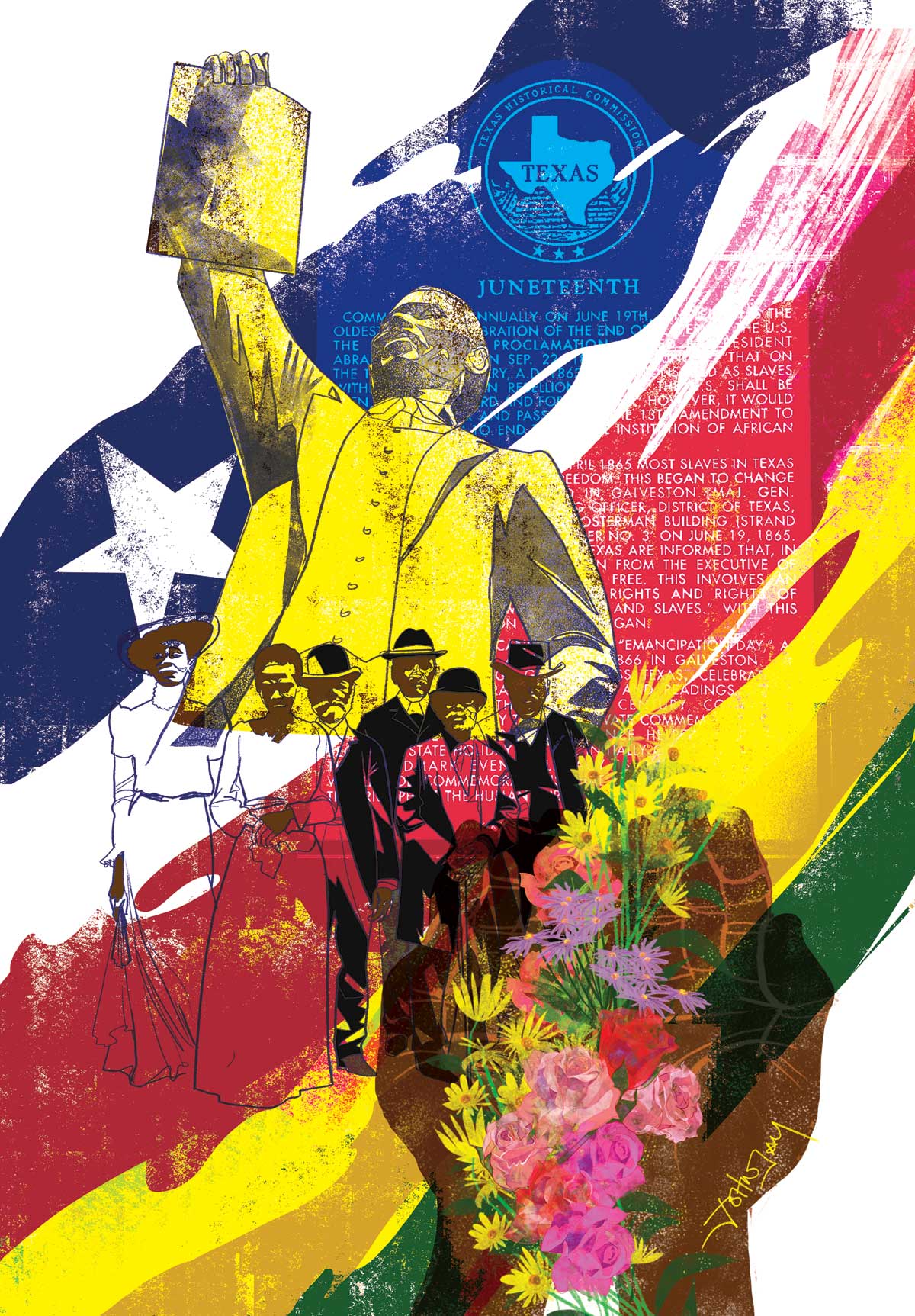To my surprise some years back, I began to hear people outside of my home state, Texas, talk about, and actually celebrate the holiday “Juneteenth.” June 19, 1865, shortened to “Juneteenth,” was the day that enslaved African Americans in Texas were told that slavery had ended, two years after the Emancipation Proclamation had been signed, and just over two months after Confederate General Robert E. Lee had surrendered to Ulysses S. Grant at Appomattox. Despite the formal surrender, the Confederate army had continued to fight on in Texas until mid-May. It was only after they finally surrendered that Major General Gordon Granger, while at his headquarters in Galveston, prepared General Order Number 3, announcing the end of legalized slavery in the state.
The truth is, I confess here, that I was initially annoyed, at least mildly so, when I first heard that others outside of Texas claimed the holiday. But why? After all, it was a positive turn in history, evidence that our country was leaving behind, or attempting to, a barbarous institution that had blighted the lives of millions. Such a thing should be celebrated far and wide.
My twinge of possessiveness grew out of the habit of seeing my home state, and the people who reside there, as special. The things that happened there couldn’t have happened in other places. Non-Texans could never really understand what the events that took place in Texas actually meant. I am certain that I’m not alone in this attitude.
From my earliest days, it was drummed into me and, I believe, other young people growing up in Texas at that time, that we inhabited a unique place that we were always supposed to claim, and of which we were always supposed to be proud. I’ve noticed over the years, that it is hard to meet a person from Texas who does not, at some point in the conversation, let you know, either with a drawl or without, that he or she is from the state.
My proprietary attitude about Juneteenth quickly disappeared. Rather than keeping the holiday to ourselves, Texans have been in the forefront of trying to make Juneteenth a national holiday. As I think of it, it’s really a very Texas move to say that something that happened in our state was of enough consequence to the entire nation that it should be celebrated nationwide.
It has been offered, as part of the justification, that the end of slavery in Texas was the end of the institution period. That’s not quite true. Granger’s order did not end slavery in the country. That did not happen officially until December 1865, when the Thirteenth Amendment to the Constitution was ratified by the necessary number of states. But it is significant that Texas was the site of the tail end of the Confederate war effort. As the war had been fought to preserve slavery, celebrating Juneteenth throughout the land is a fitting way to mark the end of that effort.
It also is fitting to think of Texas in relation to the nation for another reason. The state has been described as a bellwether for what the United States will become; the term “Texification” has come into use to describe a process that is, supposedly, of recent origin. The history of Juneteenth, which includes the many years before the events in Galveston and afterward, shows that Texas, more than any state in the Union, has always embodied nearly every major aspect of the story of the United States of America. That fact has been obscured by broad caricatures of the state and its people, caricatures that Texans themselves helped to create and helped make the state seem exotic, almost foreign to the rest of the Union.
My Texas roots go deep—on my mother’s side back to the 1820s, on my father’s side at least to the 1860s. Significantly, my wide-ranging approach to Juneteenth reveals that behind all the broad stereotypes about Texas is a story of Indians, settler colonialists, Hispanic culture in North America, slavery, race, and immigration. It is the American story, told from this most American place.


